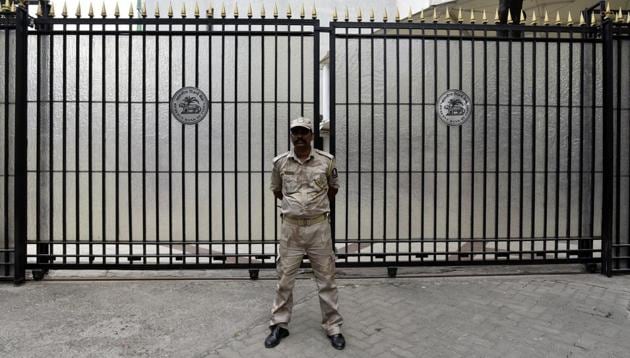The RBI can do better than this on the autonomy front
Instead of excluding the central government and players in the financial sector in a quixotic show of independence, it should work with them
Is the Reserve Bank of India deputy governor, Viral Acharya, right in lashing out at the government? And is the catastrophic scenario he claims will be caused by continued alleged government interference in the central bank’s operations real?

It is a fact that under the leadership of governor, Urjit Patel, the RBI has continued a rather hawkish stance when it comes to interest rates. There is a thinking in several quarters in the government that it missed the boat on interest rate reductions, which could have given a fillip to the economy and prepared it better for the upcoming volatility. There is also some concern in the government that the books of banks have deteriorated under the RBI’s watch, and that the blame for this is being passed on without adequate accountability. And there is some disquiet in the government that the RBI has not been able to communicate a credible strategy on the rupee to the market — the same market that Acharya believes will punish the country.
This writer is of the view that the RBI, in its pursuit of autonomy and in an effort to showcase its independence from the government, is pursuing policies that will be detrimental to the country. There are four ways in which it can do better.
Work with, not in isolation from, stakeholders: The global economy is increasingly complex. In most advanced countries, all stakeholders work together. That would mean that the RBI, instead of excluding the central government and players in the financial sector in a quixotic show of independence, should work with them. The central bank and its officers should also stick to their mandates — discussion on non-economic issues such as tolerance are not their brief. A great central bank in a failed economy may work to the benefit of the governor in terms of his or her next posting, but does little for the economy.
Reforms work best when the economy is doing well: Whether it is our personal life, companies or the economy, changes are best made when there is a buffer to reduce the effect of temporary negative impact. Piling on pressure when the economy is sucking wind because of inadequate liquidity is illogical to the extent of being bizarre. Nobody questions the need to improve asset quality — but stopping banks from lending is not the answer. Now is the time to “nurse” the economy: dealing with the bad assets but also allowing good lending to continue.
Introspect and work with the powers already vested: The RBI needs to ponder over a few issues. How did its audits fail in the case of Punjab National Bank? How did it miss the crisis in IL&FS? There are bankers in the top rungs of RBI, but what role do they play in banking policies and oversight? Why is there general international investor discomfort with the lack of direction from the RBI? Instead of post-facto penalisation, the RBI can have pre-emptive discussions with banks, ideate and come up with new solutions on bad debts, build up a long-term infrastructure funding market, and inform the markets about our FX strategy. There is enough to do, and it already has the powers to do so. An effective RBI will only help the economy.
Future-proof RBI: To deal with a complex new world, the RBI has to seriously consider breaking itself up to remove inherent conflicts of interest. For instance, a Treasury could look after FX, Interest rates and related areas; a government funding and budget unit could help with government financing; a policy making one could make the rules for the banking and financial sector and an enforcement wing can ensure compliance. The four could always work together — with each other and other stakeholders but need to be fundamentally distinct entities.
One could perhaps say that individualistic sprints are being run by short term appointees in the RBI, when the need of the hour is an inclusive approach that ensures development and broader positive market perception of India. One must remember the Indian PM has to address public concerns immediately and does not have the luxury of long term theoretical economic options available to the unelected.
shishir.gupta@hindustantimes.com






